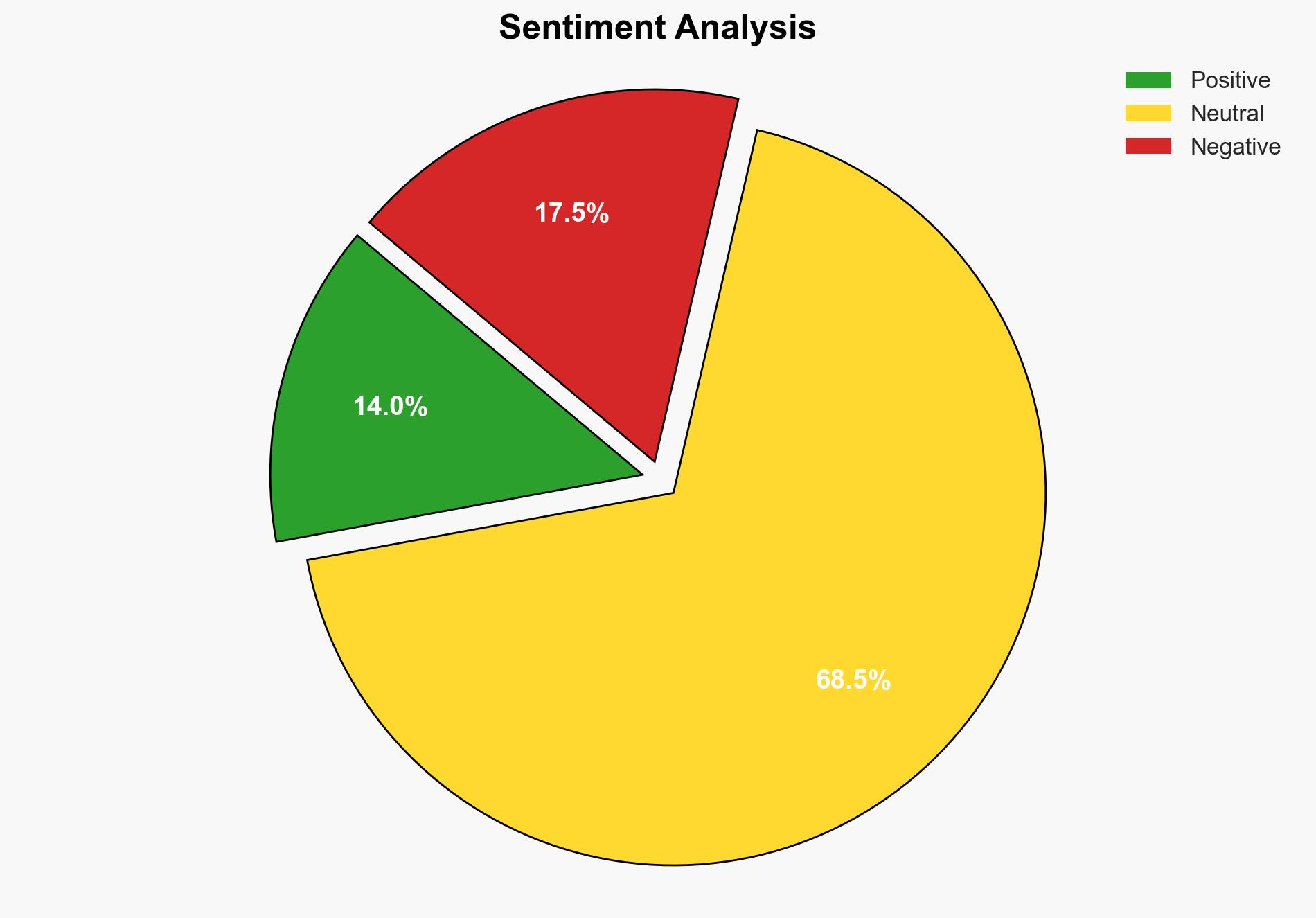Germany reopens embassy in Syria after 13-year closure – DW (English)
Published on: 2025-03-20
Intelligence Report: Germany reopens embassy in Syria after 13-year closure – DW (English)
1. BLUF (Bottom Line Up Front)
Germany has reopened its embassy in Syria after a 13-year closure, marking a significant step in restoring diplomatic relations. This move comes amidst ongoing humanitarian and security challenges in Syria. The reopening is accompanied by Germany’s commitment to support Syria’s reconstruction and a potential easing of sanctions, contingent on political reforms.
2. Detailed Analysis
The following structured analytic techniques have been applied for this analysis:
General Analysis
Germany’s decision to reopen its embassy in Damascus is a strategic move aimed at re-engaging with Syria during a critical period of reconstruction. The visit by Annalena Baerbock highlights Germany’s intent to play a role in Syria’s political transition and humanitarian efforts. The embassy’s reopening, however, does not extend to full consular services, which remain in Beirut, Lebanon. This indicates a cautious approach, balancing diplomatic engagement with security concerns.
3. Implications and Strategic Risks
The reopening of the German embassy in Syria carries several implications and strategic risks:
- Potential for increased diplomatic influence in Syria’s political landscape.
- Risks associated with security and stability in a region still experiencing conflict and sectarian violence.
- Economic interests tied to reconstruction efforts and humanitarian aid distribution.
- Challenges in holding extremist groups accountable and ensuring a peaceful political transition.
4. Recommendations and Outlook
Recommendations:
- Enhance intelligence-sharing and collaboration with international partners to monitor security developments in Syria.
- Support initiatives aimed at political reconciliation and transitional justice in Syria.
- Encourage investment in infrastructure and humanitarian projects to facilitate Syria’s recovery.
Outlook:
Best-case scenario: Successful diplomatic engagement leads to a stable political transition and improved security, enabling reconstruction and economic growth.
Worst-case scenario: Continued violence and political instability hinder diplomatic efforts and exacerbate humanitarian crises.
Most likely outcome: Gradual progress in diplomatic relations and reconstruction, with ongoing challenges in achieving comprehensive political reforms.
5. Key Individuals and Entities
The report mentions significant individuals and organizations:
- Annalena Baerbock
- Bashar Assad
- Ahmed Al Sharaa
- Syrian Observatory for Human Rights





